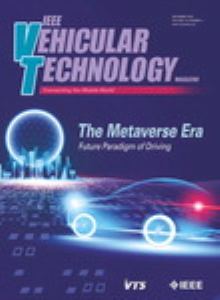基于多目标深度强化学习的自适应巡航智能车辆能量管理
IF 7.1
2区 计算机科学
Q1 ENGINEERING, ELECTRICAL & ELECTRONIC
引用次数: 0
摘要
先进自适应巡航控制(ACC)与能量管理策略(EMS)的集成对于提高燃料电池混合动力汽车的燃油效率至关重要。由于车辆动力学系统与复合能源之间的复杂相互作用,ACC和EMS固有的非线性特性需要进行复杂的实时调整,从而导致高维动态优化问题。本文提出了一个数据驱动的、无模型的深度强化学习(DRL)集成优化框架,该框架强调平衡多个目标——安全、舒适、节能和能源耐久性,同时解决高维行动状态空间中潜在的稀疏奖励加剧的政策收敛挑战。具体而言,本文提出了一种基于课程学习DRL的ACC模型,该模型具有驾驶安全性、舒适性和速度一致性的分阶段奖励机制,以模拟类似人类的渐进式学习。然后,结合自适应等效消耗最小化,设计了基于drl的EMS,以平衡燃油经济性和动力源耐用性。最后,生成并验证了集成优化框架的决策集。仿真结果表明,该方法在保证行车安全性和交通吞吐量的前提下,自动驾驶车辆的驾驶舒适性比前车提高73.4%,节能11.5%。本文章由计算机程序翻译,如有差异,请以英文原文为准。
Energy Management of Intelligent FCHEVs Under Adaptive Cruise Control Based on Multi-Objective Deep Reinforcement Learning
The integration of advanced adaptive cruise control (ACC) with energy management strategy (EMS) is crucial for improving the fuel efficiency of fuel cell hybrid electric vehicles (FCHEVs). The nonlinearity inherent in ACC and EMS arises from complex interactions between vehicle dynamics system and composite energy sources, necessitating intricate real-time adjustments and resulting in high-dimensional dynamic optimization problems. This paper proposes a data-driven, model-free deep reinforcement learning (DRL) integrated optimization framework that emphasizes balancing multiple objectives—safety, comfort, energy saving, and energy source durability while addressing the challenges of policy convergence exacerbated by potentially sparse rewards in high-dimensional action-state spaces. Specifically, an ACC based on course learning DRL is proposed, with a featuring a staged reward mechanism for driving safety, comfort, and speed consistency to model human-like progressive learning. Then, adaptive equivalent consumption minimization is combined to design the DRL-based EMS that balances fuel economy and power source durability. Finally, the decision sets of the integration optimization framework are generated and verified. The simulation results show that the proposed method can ensure driving safety and traffic throughput, the ego vehicle improves driving comfort by 73.4% and energy saving by 11.5% compared to the preceding vehicle.
求助全文
通过发布文献求助,成功后即可免费获取论文全文。
去求助
来源期刊
CiteScore
6.00
自引率
8.80%
发文量
1245
审稿时长
6.3 months
期刊介绍:
The scope of the Transactions is threefold (which was approved by the IEEE Periodicals Committee in 1967) and is published on the journal website as follows: Communications: The use of mobile radio on land, sea, and air, including cellular radio, two-way radio, and one-way radio, with applications to dispatch and control vehicles, mobile radiotelephone, radio paging, and status monitoring and reporting. Related areas include spectrum usage, component radio equipment such as cavities and antennas, compute control for radio systems, digital modulation and transmission techniques, mobile radio circuit design, radio propagation for vehicular communications, effects of ignition noise and radio frequency interference, and consideration of the vehicle as part of the radio operating environment. Transportation Systems: The use of electronic technology for the control of ground transportation systems including, but not limited to, traffic aid systems; traffic control systems; automatic vehicle identification, location, and monitoring systems; automated transport systems, with single and multiple vehicle control; and moving walkways or people-movers. Vehicular Electronics: The use of electronic or electrical components and systems for control, propulsion, or auxiliary functions, including but not limited to, electronic controls for engineer, drive train, convenience, safety, and other vehicle systems; sensors, actuators, and microprocessors for onboard use; electronic fuel control systems; vehicle electrical components and systems collision avoidance systems; electromagnetic compatibility in the vehicle environment; and electric vehicles and controls.

 求助内容:
求助内容: 应助结果提醒方式:
应助结果提醒方式:


